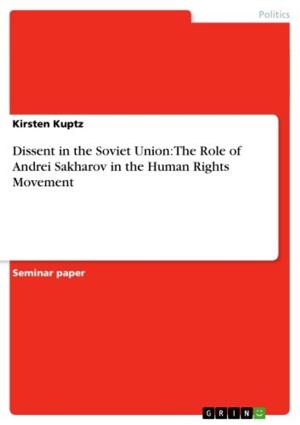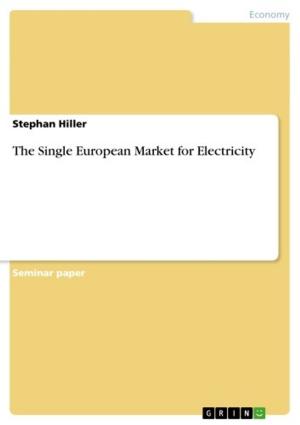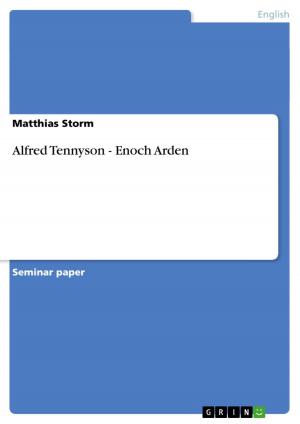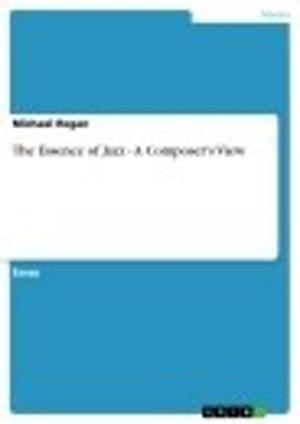The Argentinean crisis
Causes and consequences until the introduction of the currency board in 1991
Nonfiction, Social & Cultural Studies, Political Science, Politics, Economic Policy| Author: | Ernesto Neumann | ISBN: | 9783640221981 |
| Publisher: | GRIN Publishing | Publication: | November 28, 2008 |
| Imprint: | GRIN Publishing | Language: | English |
| Author: | Ernesto Neumann |
| ISBN: | 9783640221981 |
| Publisher: | GRIN Publishing |
| Publication: | November 28, 2008 |
| Imprint: | GRIN Publishing |
| Language: | English |
Essay from the year 2008 in the subject Business economics - Economic Policy, grade: 1,8, Berlin School of Economics, 15 entries in the bibliography, language: English, abstract: In this essay I am going to talk about the Argentinean economy crisis and its political and economic causes and consequences until the introduction of the currency board in 1991. I am going to point out why the political processes in Argentina had a negative effect on the whole economy of this country. As from 1880 an economic upturn began in Argentina, caused by a continuously increasing and enduring export of agricultural products which continued, interrupted by the years of World War I, until shortly after the outbreak of the Great Depression, in 1929. Until the world economic crisis in 1929, Argentina's economic policy was mainly focused on agrarian export, basically to Europe, Great Britain. The demand for agrarian products and raw materials by industrialized countries increased after the Great Depression - except between 1929 and 1930, when Great Britain preferred to import products from its former colonies Canada and Australia and closed its mind towards alternative markets like Argentina's. In this era of Argentina's history, when GDP grew permanently, extremely in comparison to the international average, and when foreign investors started to invest their capital, also a wave of immigrants arrived at this part of South-America. Argentina was investing in infrastructure and quickly became to the most modernized country of this continent and started the beginning of industrialization. Due to foreign investments and immigration, Argentina was able to increase the agriculturally used acreage. This situation resulted in an ongoing economical growth. By the middle of the 19th century Argentina had the biggest economy worldwide. Until 1914, 70% of the agricultural products were exported - 30% of the GDP! The WWI got Argentina's economy into trouble as foreign investors took their capital back to invest it in the military industry. That was the beginning of the strategy of ISI (Import substitution industrialization). In 1929 Argentina became one of the biggest exporters for deep-frozen meat, corn and other agricultural products worldwide. At this time Argentina was the richest country in the world. A popular phrase of this time was 'rich like an Argentine' [...]
Essay from the year 2008 in the subject Business economics - Economic Policy, grade: 1,8, Berlin School of Economics, 15 entries in the bibliography, language: English, abstract: In this essay I am going to talk about the Argentinean economy crisis and its political and economic causes and consequences until the introduction of the currency board in 1991. I am going to point out why the political processes in Argentina had a negative effect on the whole economy of this country. As from 1880 an economic upturn began in Argentina, caused by a continuously increasing and enduring export of agricultural products which continued, interrupted by the years of World War I, until shortly after the outbreak of the Great Depression, in 1929. Until the world economic crisis in 1929, Argentina's economic policy was mainly focused on agrarian export, basically to Europe, Great Britain. The demand for agrarian products and raw materials by industrialized countries increased after the Great Depression - except between 1929 and 1930, when Great Britain preferred to import products from its former colonies Canada and Australia and closed its mind towards alternative markets like Argentina's. In this era of Argentina's history, when GDP grew permanently, extremely in comparison to the international average, and when foreign investors started to invest their capital, also a wave of immigrants arrived at this part of South-America. Argentina was investing in infrastructure and quickly became to the most modernized country of this continent and started the beginning of industrialization. Due to foreign investments and immigration, Argentina was able to increase the agriculturally used acreage. This situation resulted in an ongoing economical growth. By the middle of the 19th century Argentina had the biggest economy worldwide. Until 1914, 70% of the agricultural products were exported - 30% of the GDP! The WWI got Argentina's economy into trouble as foreign investors took their capital back to invest it in the military industry. That was the beginning of the strategy of ISI (Import substitution industrialization). In 1929 Argentina became one of the biggest exporters for deep-frozen meat, corn and other agricultural products worldwide. At this time Argentina was the richest country in the world. A popular phrase of this time was 'rich like an Argentine' [...]















